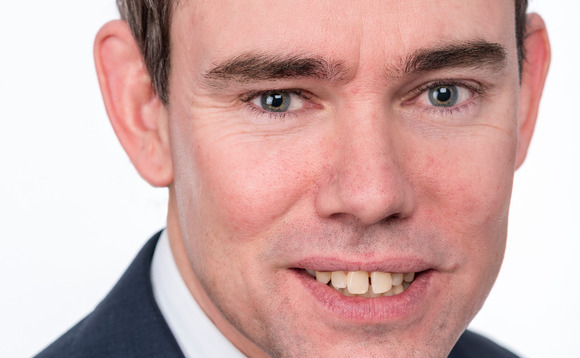
Danske's Fromm discusses debt trends in the Nordics

After an IPO-heavy year in the Nordic private equity market, 2016 could see the return of more dual-track processes, while debt covenants may continue to loosen. Mikkel Stern-Peltz speaks to Danske Bankтs head of leveraged financed in Sweden, Lars Fromm
Mikkel Stern-Peltz: What was your impression of the Nordic private equity market in 2015 and what do you expect in 2016?
Lars Fromm: It was very much focused on IPOs, particularly in Sweden, with a substantial amount of activity during the spring. There weren't a lot of dual-track processes - assets were headed directly for the stock exchange. There were of course the opportunistic buyers that always circle around assets, but it was very much the IPO that was leading the sales processes.
So far this year we've seen more of a balance between M&A and equity capital markets and I think we'll see more true dual-tracks for most deals. The companies that are rumoured for the stock market are also addressing financial and industrial buyers to a larger degree, so I expect they won't all be floated but rather acquired.
As you could see last year, there was quite a lot of activity towards the end of the year, so the funds are very much open to invest and they have a lot of liquidity. I think corporates will definitely fuel the dual-track processes as well, but given the amount of liquidity financial sponsors have, they will be very competitive.
I think one change there has been in the Nordic banking market is that banks are increasingly evaluating the best financing options that are available in the market and not only relying on the appetite of their own institution. Thereafter, they are looking at how they can facilitate the deal with short term money to bridge to other sources of liquidity using long-term money to take down the transaction risk.
MSP: Early last year there was concern among bankers in the Nordic markets about the increase in covenant-loose financing and - to some degree - increasing leverage. How would you characterise the Nordic debt market last year?
LF: More so than increasing leverage levels, we saw looser documentation requirements last year. Covenants definitely became fewer and fewer, but also increased flexibility in other provisions. In particular, we were pushed on permitted payments and the ability to incur additional debt.
The development towards cov-loose/lite is an international phenomenon. The US led it in the beginning of last year with Europe following, and eventually also cov-lite came to the Nordics with a bit of lag. However, it was just following the market development driven by all the liquidity available in various debt funds, as well as credit investors having to compete with bond investors. On the very large-cap deals, documentation on cov-lite loans are in practice quite similar to bond documentation.
MCSP: For a few years, debt professionals have been predicting the rise of alternative lenders in the Nordics, but a real surge in activity has not happened to any large degree. Are we finally seeing the alternative debt financing space pressuring bank debt terms?
LF: Not in the Nordics to any meaningful degree since we have such strong local banks holding the ground together with a flexible local bond market. However, we definitely hear them knocking on the door, and more so last year than in 2014. Particularly in growth stories, where you need more flexibility in the documentation, for example.
What we saw last year was that those structures were discussed in a larger amount of smaller deals, rather than just the largest - not all materialised, but it definitely arrived to a larger extent.
The Nordic banking clubs are, without a doubt, still a factor, but I think Danske - as well as others - is more aware of the alternatives and is trying to use those, making the financings as competitive as possible. That might mean we sell some of the B-term loans, even in quite small transactions. Finding the right investors can allow banks like Danske to provide more B-loan heavy structures in and in some cases structures without any amortising tranches.
MSP: In some European markets fund-level equity bridging loans or RCFs were in increasingly high demand and growing in size - was this also the case in the Nordic private equity market?
LF: They've been around for some time, but we are receiving more and more enquiries about them. The RCFs are, in general, used to fund the first six to nine months of the equity check, but I expect more pressure to come on extending the time period. GPs need to use all means available to increase their returns and that is one way of doing so.
MSP: Is there a worry among banks that the use of fund RCFs in that way is moving into financial engineering and leverage-on-leverage territory?
LF: Yes, but so far it has been manageable. However, we need to be mindful and somewhat cautious, and the GPs need to be so as well to some extent.
MSP: We've seen what looks to be a pre-empting of upcoming solvency and capital requirements by Nordic banks, what influence has that had on Nordic leveraged loans market?
LF: It has been impacted to some extent. The cost of capital is definitely increasing, so banks are trying to distribute debt to a larger extent, including smaller deals, but in a balanced way. It's important to note that it is often good to have more than one lender/debt investor on board from the beginning even in a smaller transaction as it increases the fire power to support larger acquisitions and/or investments. For example, Danske can more easily step up for a large acquisition and then create that firepower again by selling commitments, instead of being full from day one. This is partly to address the capital cost of banks, but it's also beneficial for the sponsors because they have more sources of funds for investments if we offload some of that risk in the beginning.
MSP: What is your view on how asset prices developed last year?
LF: Valuations were definitely high, partly driven by the supportive IPO market that we mentioned earlier. In order to motivate paying those multiples, the sponsors needed debt packages with both high leverage but, even more importantly, ample flexibly in order to be able to actively grow the company in various ways and also the ability to extract cash from the operating group before a sale.
However, we saw leverage levels stabilising towards the end of last year and I don't think valuations will increase further in general; but I know that there are a few rumoured transactions with very high expected multiples, so let's see.
Danske Bank's Lars Fromm will be speaking at this year's unquote" Nordic PE Forum, which takes place on May 18th in Stockholm. For more information on speakers, agenda and to book your place, click here.
Latest News
Stonehage Fleming raises USD 130m for largest fund to date, eyes 2024 programme
Sponsor acquired the public software group in July 2017 via the same-year vintage Partners Group Global Value 2017
Stonehage Fleming raises USD 130m for largest fund to date, eyes 2024 programme
Czech Republic-headquartered family office is targeting DACH and CEE region deals
Stonehage Fleming raises USD 130m for largest fund to date, eyes 2024 programme
Ex-Rocket Internet leader Bettina Curtze joins Swiss VC firm as partner and CFO
Stonehage Fleming raises USD 130m for largest fund to date, eyes 2024 programme
Estonia-registered VC could bolster LP base with fresh capital from funds-of-funds or pension funds









